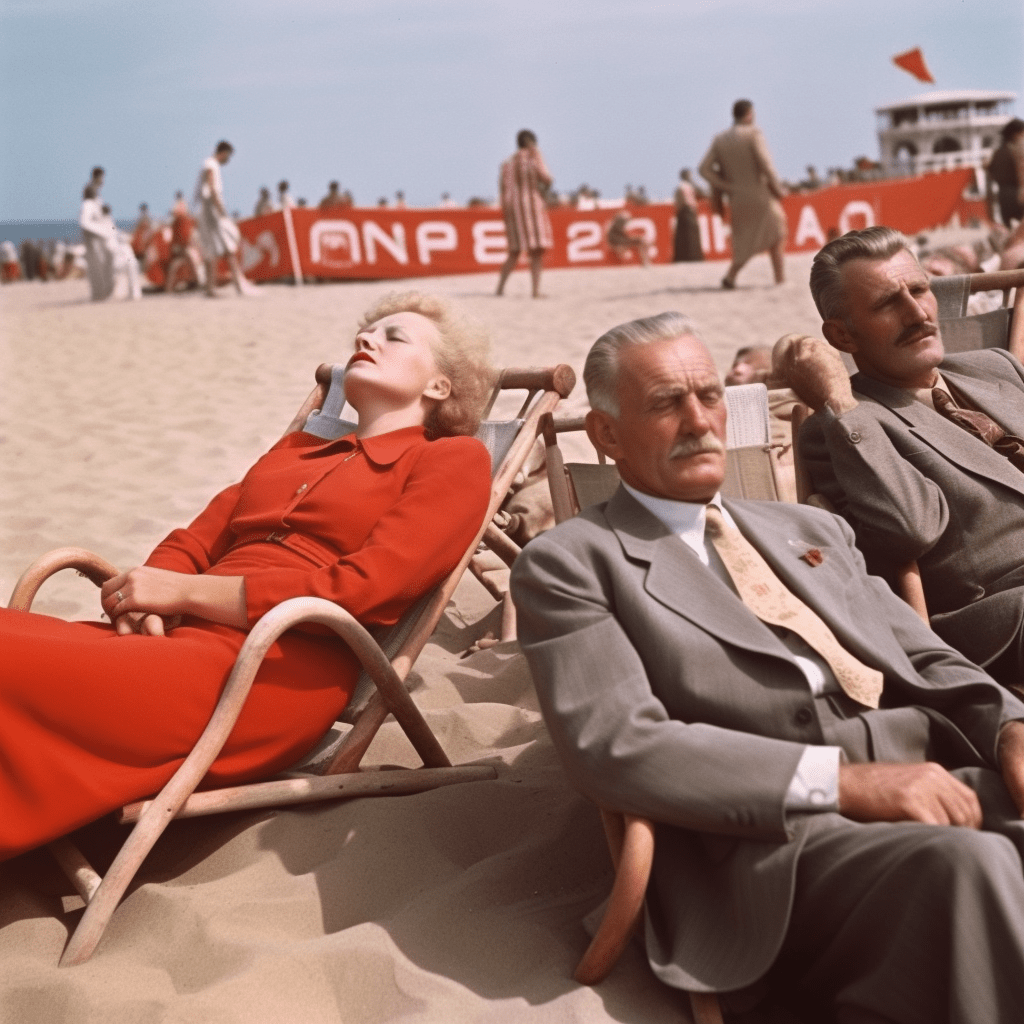Truth & Goodness
Poison on a Plate: What Drives Us to Eat Dangerously?
01 March 2026

If we’re constantly occupied, we strip our lives of the essential rhythm it requires: a healthy cyclical contrast between doing and “not doing.” However, in a culture of overwork, we are exposed to the risk of occupational burnout, which has become a civilization disease. As work consumes a significant portion of our lives, this requires reflection. The prevalence of chronic work-related stress and the imbalance between work and personal life calls for reevaluating our approach to work and leisure. Rest, once considered a natural element of life, is a challenging task today in the face of relentless digital distractions. Embracing new ideas like four-day workweeks and other unconventional solutions while prioritizing meaningful work and personal well-being can help us gain a healthier balance in our lives. Even Socrates warned about living perpetually overburdened lives.
In fact, the risk of occupational burnout is significant. According to OECD data (the Organization for Economic Cooperation and Development), Poland has consistently ranked among the most overworked European societies. Occupational-burnout statistics from the study People at Work 2022: A Global Workforce View indicate that a quarter of Polish employees has experienced the syndrome and its consequences. A report from ADP (Automatic Data Processing, a US company) also reveals that more and more employees are working overtime. One in four employees does unpaid work for six to ten hours a week. According to Eurostat data for 2021, Poles work 40 hours per week an average, surpassed only by Serbs and Greeks.
The data indicate that burnout affects Poles in their professional lives and also in their family lives. About 8 percent of parents have experienced parental burnout, highest among 42 countries surveyed worldwide. One reason may be young fathers’ reluctance to take paternity leave, with only 61.9 percent using of their allotted 14 fully paid days. Men choosing not to take it often cite the lack of need for it at home (31.1 percent) and job-related duties and employment constraints (22.9 percent).
In the US, capitalism’s global capital, the situation for workers is equally concerning. There, the European tradition of taking vacations has never been fully assimilated. Currently, only 74 percent of Americans have the privilege of paid leave, and it is significantly shorter than the European average, only 11 days. Unfortunately, legally employed workers aren’t all entitled to paid leave, which isn’t legally regulated, making the US the only such case among developed countries.
Read also:
Through much of human history, increased wealth let people free themselves from work burdens. Over the past 50 years, though, a trend has been observed: even given growing affluence and productivity, many highly educated Americans work more than ever. Rather than trading wealth for leisure, these professionals trade their leisure for more work. And the situation also holds among those in lower-income brackets. According to the Economic Policy Institute, the lowest-earning fifth of Americans in 2016 worked almost 25 percent more hours than 40 years ago. As pay raises stalled among those with low incomes, they were forced into longer working hours to make ends meet.
One of the most influential ideological impacts on contemporary perceptions of labor has been the Protestant work ethic that emerged during the Reformation. It promoted work as inherently virtuous. Throughout history, collective work provided basic needs, mainly sustenance. Today, many people still see work as an unpleasant obligation, necessary for economic survival. An increasing number strive to maintain a career that brings them joy or aligns with their life passion, however. Pursuing such a path isn’t easy, as it requires a strong sense of self-worth and introspective abilities. It could be facilitated should governments and employers promote the creation of diversified career paths, letting people combine part-time work with professions they’re passionate about. Currently, people who juggle multiple jobs are often poorly compensated, and their primary motivation is economic. According to Eurostat, in 2022, only 5.8 percent of employed Poles were engaged in part-time work, while in the Netherlands that percentage was up to 42 percent, with the EU average at 17.7 percent.

Responding to pressure from trade unions in 2018, the French government addressed the issue of occupational burnout, which in recent years has become a civilizational disease. A report by a national research center there showed that up to 40 percent of workers can’t stop checking phones or email during their free time as their bosses may send messages, day or night. As Johann Hari notes in Stolen Focus: Why You Can’t Pay Attention (2022), this is a significant paradigm shift at work. Even in the 1970s, employees at home weren’t connected with their employers. The only people “on call” were doctors, the president, and the prime minister. We’ve gone from a situation with almost no one on call to nearly half the workforce being on constant standby.
French trade unions began to fight for a straightforward solution to this problem, which was quickly achieved. Every employee now has the right to “disconnect.” In theory, it’s extremely simple: an employee must have defined, documented work hours; once those end, there’s no obligation to check phones or email.
However, leisure can be as problematic as excessive work responsibilities. “Doing nothing” can impose a sense of guilt. We fear idleness and lying around, associating these states with what is inappropriate behavior that can lead us astray. One in ten of us feels guilty just at the thought of any form of rest. Where has this come from? It’s a direct result of our culture, which rewards whoever is constantly busy and working with high social status, creating the image that this is indispensable to society:
A team of scientists from Columbia University published an article titled “Conspicuous Consumption of Time: When Busyness and Lack of Leisure Time Become a Status Symbol”, which shows that hard work has become a symbol of social status. In a series of studies, busy individuals were perceived as having “higher status because others saw them as more competent and ambitious, and also more desirable in the job market.”
In Claudia Hammond’s book The Art of Rest: How to Find Respite in the Modern Age, examines the latest scientific research on rest. According to Hammond, good rest is primarily that which we allow ourselves. Yet how can we achieve that in a state of constant alert imposed by social media and digital-capitalist industry demanding our attention? Due to smartphones, we’ve rid ourselves of the experience of boredom. As the philosopher Mark Fisher noted, today “nobody is bored, although everything is boring.” Digital stimulation, as French research has demonstrated, robs us of productive work and of the opportunities for rest and rejuvenation.
The culture of overwork has many causes. In the US, the researcher Jenny Odell rightly points out in her book Saving Time: Discovering a Life Beyond the Clock that “most people perceive their time and work as money not because they want to but because they are forced to”. Pay hasn’t kept pace with the rising cost of living and people must take on excessive workloads, pushing their limits to maintain an acceptable standard of living.
A glimmer of hope lies in the widespread adoption of four-day workweeks with no reduction in pay. Between 2015 and 2019, Iceland conducted two such experiments, reducing the workweek from 40 hours to 36 or 35 for over 1 percent of the national workforce with no pay cuts. Employees from various sectors – teachers, police officers, construction workers, city hall employees in Reykjavik – participated in these trials. Remarkably, over all sectors, no decrease in work productivity was observed. The government call center even handled 10 percent more calls than its counterpart with longer working hours. Employees reported having more time as well as more energy for hobbies, social life, and family. As is widely known, a well-rested employee is more productive.
Similar experiments have been conducted on smaller scales in the UK and the US, yielding comparable results. Unfortunately, reducing work hours is a greater challenge in sectors such as production and construction, where the link between working hours and productivity is exceptionally fixed. That issue could be addressed through advancing automation, however, but that’s a topic for another article.
In conclusion, research is unequivocal: workers in many countries suffer from occupational burnout, with a mounting number of people experiencing negative consequences due to imbalances between work and personal life. Rest, which should be a natural element of our lives, becomes a challenging task, and constant digital stimulation hinders our ability to focus on regenerating. Facing these challenges, ideas that are worthy of consideration include implementing four-day workweeks at full pay and openness to new, unconventional solutions – after all, reducing work hours can lead to increased productivity. Ultimately, the goal shouldn’t merely be to “do” and pack our lives with constant work, but to create a rich, meaningful life where work, social relations, and rest form a harmonious whole.
Sources:
Simone Stolzoff, The Atlantic, “The Moral Case for Working Less” (2023)
Paulina Wilk, Przekrój, “Wyższa szkoła wypoczynku” (2022)
Derek Thompson, The Atlantic, “Why Americans Care About Work So Much” (2023)
Johann Hari, Current Affairs, “How Capitalism Is Killing Our Attention Spans” (2023)

Truth & Goodness
01 March 2026


Zmień tryb na ciemny